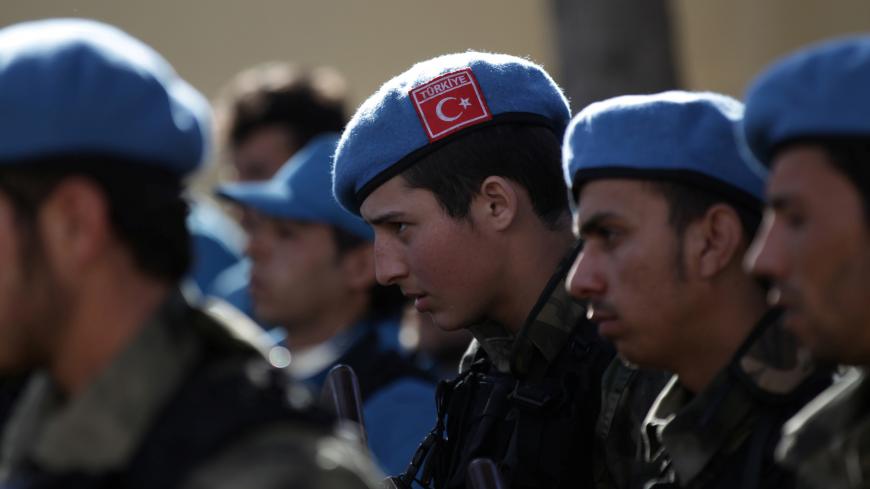ALEPPO, Syria — The area in northeastern Syria affected by Operation Peace Spring continues to suffer from a chaotic security situation, raising fears among residents. The area is controlled by the Syrian National Army (SNA) of the Free Syrian Army (FSA) and the Turkish army. This is happening despite elaborate efforts by the local councils to achieve stability in the area and help Syrian refugees in Turkey return to their homes.
The opposition-affiliated Ministry of Interior of the Syrian Interim Government announced Jan. 12 that the police and general security forces would begin their work in the Turkish-occupied security zone after having received the adequate and necessary training in Turkey. The situation, however, remains unsettled.
A car bomb exploded Jan. 16 in the town of Suluk near the Tell Abyad district in the north of Raqqa governorate. The explosion targeted the SNA headquarters and killed at least 10 fighters, including three Turkish army soldiers.
Earlier, on Jan. 8, four Turkish soldiers were killed in a car bomb in the town of al-Arbaeen on the western side of the town of Tell Tamr in Ras al-Ain.
The towns and villages in the area witness similar sporadic attacks that cause the deaths of dozens of civilians and the disruption of normal life and raise fear among residents; this is compounded by SNA violations against citizens, including stealing and setting houses ablaze.
On Jan. 1, FSA al-Majd Corps fighters killed Ammar Al-Hajji, a civilian, in the city of Tell Abyad. They stopped Hajji and asked him for his car key. When he refused, a fighter hit him on the head with a sharp object, killing him. This led dozens of people to protest the National Army’s violations and gather in front of the National Army Military Police building in Tell Abyad to demand the arrest of the killer.
SNA media coordinator Yahya Mayo told Al-Monitor the area controlled by Turkey following Operation Peace Spring has been facing a difficult security situation given the bombings targeting civilian gatherings.
Mayo blamed the Syrian Democratic Forces (SDF) for what he called terrorist attacks that are hindering the return of normal life in the towns.
“We are well aware the SNA factions bear part of the responsibility of what is happening in the Peace Spring area. There are determined efforts to maintain security and limit violations on the part of some fighters among different SNA factions. Those are being punished when they cause chaos or infringe on people’s liberties. They are either dismissed from their work in the SNA, imprisoned or fined — especially when it comes to infringement on private or public property in the area,” Mayo explained.
He said accused SNA fighters are also being chased down and arrested via a follow-up committee affiliated with the Syrian Interim Government’s Ministry of Defense that was established Oct. 13, 2019. Should they be convicted of the charges, these fighters are referred to the military judiciary for trial and punishment.
Ahmad Nour, a grocery store owner in the city of Ras al-Ain, told Al-Monitor, “The security situation in the area is unstable. The people in the city are scared to leave their houses to run errands because of the random car bombs targeting civilians.”
“Life will not return to normal unless people feel safe to go about their daily lives without having to worry about getting killed. We hope the police will be able to control the security situation,” he added.
Feras Allawi, a Syrian journalist, told Al-Monitor, “People seek security and stability. The ongoing attacks, explosions and assassinations are evidence of instability in the Peace Spring area, which would definitely affect the return of refugees to their homes and the resumption of basic services.”
“What is happening is the result of the ongoing repercussions of the military operations. I think we will witness more ‘operations’ at the hands of the SDF,” he said.
Allawi continued, “Local councils are not yet able to provide basic services with several obstacles in their way, mainly the difficulty of movement. They also lack expertise and competencies to work under complex security conditions.”
Abdel Karim Mohammad, a member of the local council in the Ras al-Ain area, told Al-Monitor, “Things need more time as the area has recently emerged from war. The services provided by the local councils are currently not sufficient given the bad security situation and the ongoing bombings by the SDF.”
Mohammad Borhan, an official with police forces in Tell Abyad, told Al-Monitor the police forces received military training in Turkey and police volunteers hail from the area and are very familiar with it and with the people’s traditions, which would help control the security situation. “But it all needs time and effort,” Borhan said.
“The police are in for a big challenge as the SNA factions control the area, and they bear the bulk of responsibility for the deteriorating security situation since they do not coordinate among themselves and corruption is rampant in their ranks. This gives more ground to the SDF to maneuver and make security breaches,” Allawi said.
Journalist Ali Ahmad al-Najjar, who is based in Ras al-Ain, told Al-Monitor, “The SNA established military police and a military court to arrest and prosecute criminals.”
“This would greatly contribute to changing the security situation for the better. There are also joint operations between the civil and military police to achieve stability in the area,” he added.
Suhaib al-Jaber, spokesman for the 20th Division in the SNA, told Al-Monitor, “The police and the general security units have received training to preserve the internal security and were provided with equipment and devices to be able to detect explosives, which would facilitate their tasks. The SNA factions will not stand in their way but will help them in their mission.”






